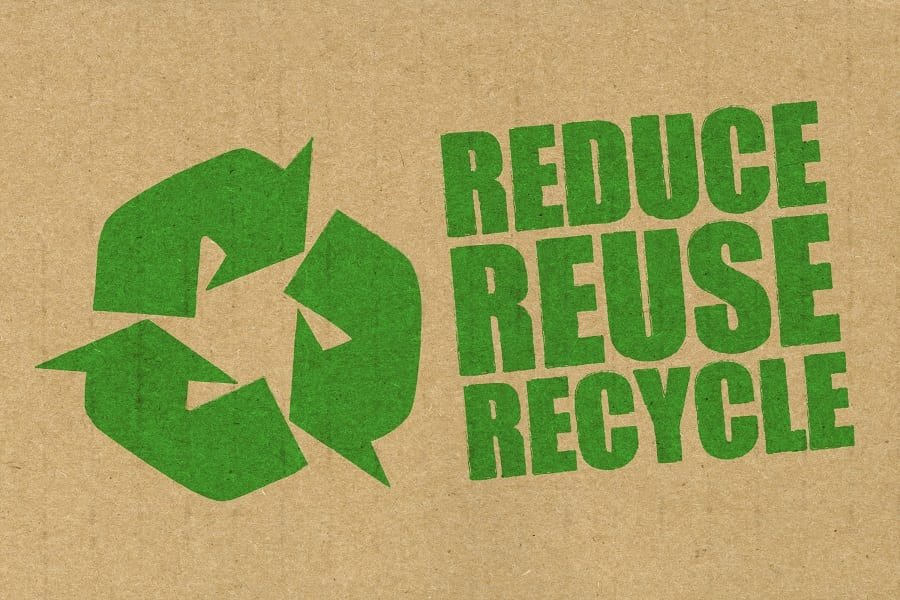Reduce, re-use, recycle?
In a world where 2.01 billion tonnes of waste is produced annually, reduce, re-use, recycle is a phrase we often hear. Everyone around us, family, friends, social media, constantly bombarding with ways to reduce waste. However, what if I told you only around 9% out of 100% of plastic gets recycled (1). This astonishing amount is reality and the reason why it is important to first focus on reducing and reusing products before resorting to recycling.
Moreover, even when plastic is recycled, the carbon-intensive process has its own environmental impacts. Think about it like this: Most recycled waste gets sent to another country, where it then is washed, chopped and re-melted to create the same or a new product. All this transit and processing itself already increases global greenhouse gas emissions, which is the opposite of saving the earth.
Overall, following the phrase in order to reduce first, re-use when possible and recycle as a last resort is extremely crucial to tackling food waste management on a global scale.
The first ‘R’
Reducing waste may seem difficult to many, but it is actually possible if enough effort is exhilarated into taking action. Some areas to start reducing waste would be clothes shopping. According to fashionunited, at least 50% of clothing in one’s wardrobe is never worn. Additionally, many people tend to support fast fashion by buying clothes that they do not need for a very cheap price. To help combat unnecessary waste production, one could repurpose and upcycle their clothing to fit the new trends or styles in season.
Adding on, another way to reduce waste is to buy non-disposable substitutes for foil/cling film such as beeswax wrapping paper—perfect for wrapping sandwiches—and reusable ‘cling film’ lids—which can be used to seal anything when it comes to food storage.
The second ‘R’
If you are struggling to find ways to reduce waste, a second resort would be to reuse. Re-using means “to find new ways to use things that otherwise would have been thrown out”. This can range from anything like a nut butter or jam jars to store spices and leftovers, to using milk cartons or egg boxes to grow herbs (as shown in the image above).
If you have a fireplace at home or want to create used wood can be used as firewood. Moreover, if you have a car (like most other Americans), worn out tires can be used as workout equipment (similar concept to an obstacle course) or can be used to make tire-swings. Last but definitely not least, you can donate old books and clothing to a homeless shelter or second-hand shop near you.
All these examples can help lower your individual carbon footprint and emissions, which is the key to making change.
The third, and final ‘R’
Recycling is to turn something aged and futile, into something new and useful.
Although recycling, at least from personal experience, is something that is always brought up and spoken about. However, it should be the very last resort out of all three ‘R’s to bettering our environment. Nonetheless, every small change makes a difference so recycling is still recommended.
The ability to recycle depends a lot on where you are. Some countries have recycling bins near homes or in apartment complexes, some countries don’t even have recycling bins in housing. If you live somewhere that has separate recycling bins at home that get picked up, it is important to make sure you sort your trash accordingly and wash it before it goes into the recycling bin. This is because one dirty/ unwashed bit of recycling can result in the entire load being thrown into the non-recyclable trash instead. On the other hand, if you are unable to recycle directly from your home, you can store the waste in glass jars, bottles, or cans, then take them to a recycling center.
Furthermore, if you have a garden or balcony where you can grow plants, try composting your food waste so that you can use it as a fertilizer for the soil.
Overall, recycling your waste is not the best option out of the three ‘R’s, however, it is understandable that not many can always reduce and reuse products. Therefore, just remember that small changes make big differences and your impact matters.




